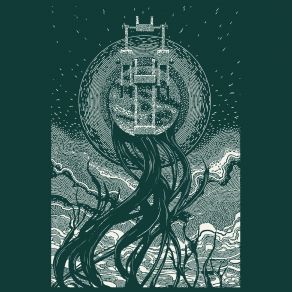Then It All Came Down
Download links and information about Then It All Came Down by Wrekmeister Harmonies. This album was released in 2014 and it belongs to Electronica, Rock, Black Metal, Progressive Rock, Metal, Death Metal, Alternative, Classical genres. It contains 1 tracks with total duration of 33:58 minutes.

|
|
|---|---|
| Artist: | Wrekmeister Harmonies |
| Release date: | 2014 |
| Genre: | Electronica, Rock, Black Metal, Progressive Rock, Metal, Death Metal, Alternative, Classical |
| Tracks: | 1 |
| Duration: | 33:58 |
| Buy it NOW at: | |
| Buy on iTunes $9.99 | |
| Buy on Amazon $8.99 | |
| Buy on iTunes 0 | |
Tracks
[Edit]| No. | Title | Length |
|---|---|---|
| 1. | Then It All Came Down | 33:58 |
Details
[Edit]Then It All Came Down is the second Thrill Jockey album from Wrekmeister Harmonies, the large musical ensemble led by J.R. Robinson. The title is taken from 1973 interview Truman Capote conducted with Bobby Beausoleil, the imprisoned musician, Aleister Crowley devotee, Charles Manson associate, and convicted killer. It features players from Chicago's fertile musical community. Among them are cellist Fred Lonberg-Holm, harpist Chanel Pease, guitarist Ryley Walker, experimental artists Bruce Lamont and Sanford Parker, and members of Indian, Leviathan, and Codeine. This second recording reflects what Robinson perceives is taking place in Capote's interview — Robinson wrote an essay about it — on a larger cosmic scale, where angelic innocence can, with a slight change of angle, become Luciferian evil. At its beginning, innocence, light, and freedom are represented by loosely strummed guitars and a trio of female voices airily singing the words "Beautiful Sun" (the English translation of Beausoleil's name). Echo, space, and ambient sounds slowly enter the mix before a brooding sonic drone winds in, followed by Lamont's subterranean, slowly uttered evil snarl underscored by a cello. The shadowy tension is gradually ratcheted up as liturgical chants, tremolo black and death metal guitars, drums, strings, and electronics are threaded in. Drones, dissonance, and power riffs plunge into metaphysical darkness that is as total as it is focused. The intensity is roiling and bleak, yet irresistibly beautiful in its seductive sway. When Then It All Came Down pares back to re-enter gentler spaces amid textured strings, church organ, and softer drones, it doesn't return to the light but remains in the blinding presence of total darkness. But that's a question more than a little unsettling: Is free will an end in and of itself ? Does it require the balance of compassion to realize the fullness of its humanity or spiritual fulfillment? Then It All Came Down is an unflinching musical and intuitive work; whose vision of spiritual transformation is not so much "hopeless" as it is an act of a witness via sonic communication. Robinson doesn't judge. He creates music that receives, conceives, questions speaks about the space between the aforementioned poles. Only the listener can decide what to do with the enormity of his artful observations and poignant questions. Brilliant.